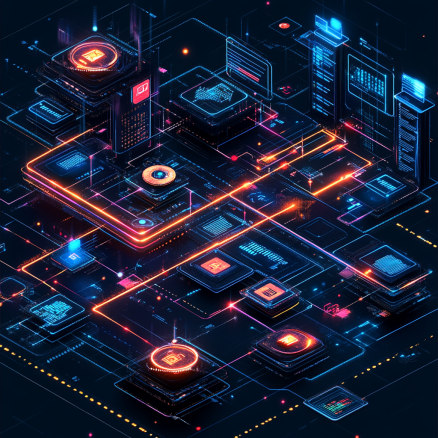Argentina’s AI-Driven Crime Prevention Strategy Raises Privacy Concerns
In a bold move to curb crime rates, Argentina launches AI crime prevention strategies with the formation of a new unit dedicated to leveraging artificial intelligence (AI). This initiative, led by the Ministry of Security of Argentina, aims to deploy advanced machine learning algorithms to predict and prevent potential criminal activities by analyzing historical crime data.
Introducing the UIAAS
The newly established unit, known as the Applied Artificial Intelligence for Security Unit (UIAAS), comprises experts from the Argentine Federal Police and other security forces. The UIAAS is tasked with identifying unusual patterns in computer networks that could indicate cyber threats, including malware and phishing attacks. Similarly, the unit will engage in critical tasks such as bomb disposal and enhancing communication speeds between the police force and security teams.
In addition, another significant aspect of the UIAAS’s strategy involves monitoring social media activities to detect communications that might hint at future crimes, movements of criminal groups, or potential disturbances.
Skepticism Among Experts
Despite the potential benefits outlined by the Argentine government, the initiative has been met with skepticism from various quarters. Prominent American software engineer Grady Booch voiced his concerns on social media, cautioning that the project “will not end well,” reflecting apprehensions about the implications for privacy.
David Arnal, a computer software engineer, also expressed reservations, questioning the cost to privacy as AI combats crime. Author Derrick Broze echoed this sentiment, highlighting the lack of response from certain political groups, notably Milei supporters, on this pressing issue.
Global Context of AI Regulation
The announcement from Argentina comes at a time when AI regulation is under intense scrutiny globally. Similarly, the United States government has recently taken steps to better understand the safety standards of AI systems by initiating an investigation into OpenAI, the creators of ChatGPT. This includes inquiries into the company’s practices regarding the safety and security of its AI models and its treatment of whistleblowers.
Meanwhile, the United Nations General Assembly has adopted a resolution, initiated by the United States and supported by 123 countries, including China, which calls for the safeguarding of human rights and personal data in the deployment of AI technologies. Specifically, this resolution encourages nations to assess AI systems rigorously to identify and mitigate associated risks.
Looking Ahead
As Argentina embarks on this ambitious project to integrate AI in crime prevention, the global community watches closely. The balance between enhancing security and protecting individual privacy remains a delicate challenge. The outcomes of Argentina’s AI strategy could potentially set a precedent for other nations considering similar approaches to law enforcement and public safety.
For more insights into how AI is reshaping various sectors, including recruitment and security, visit our articles on the role of AI in web3 recruitment and web3 and AI collaborations.
Stay updated with the latest developments in blockchain and AI by exploring our comprehensive coverage on blockchain recruitment and the evolving landscape of digital technologies.




